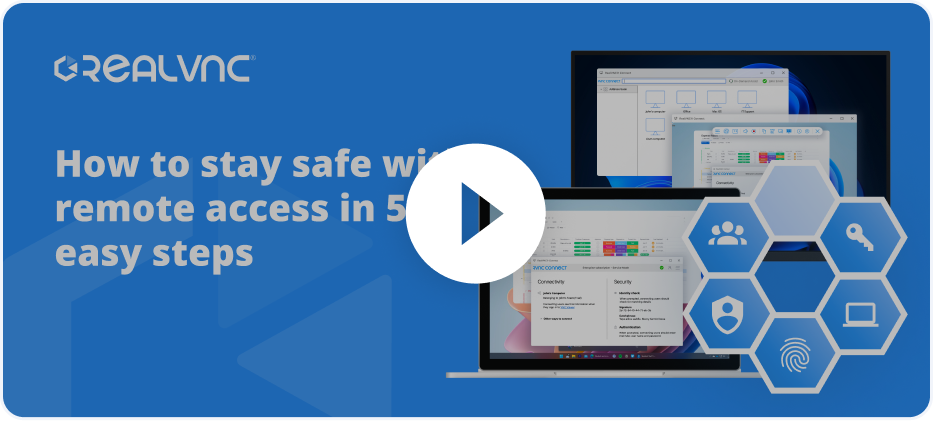The future of work is here. It isn’t, as some in the past had predicted, a high-tech futuristic office. Instead, it’s somewhere much more familiar; your living room, home office, or even kitchen. Ten years ago, few could have predicted the recent move towards remote work. Today, almost all departments are embracing the approach—customer service is no exception.
In fact, 65% of service leaders predict remote or hybrid work models in the future. If you’re a call center agent working from home for the first time, it can be a learning curve. But don’t worry, remote working isn’t as terrifying as you might think. In fact, with the right mindset, you can perform better at work and feel more contented.
With that in mind, let’s explore some top tips for call center agents working from home.
The benefits of working from home
There are actually lots of benefits of working remotely. By recognizing and making the most of these advantages, you’ll have a much happier time.
First things first; you’re cutting out the daily commute. This means you’re saving money on fuel and potentially avoiding a stressful drive. What’s more, as you only need to boot up your laptop, you don’t have to get up as early.
Another benefit is that some employers will allow you flexibility over your schedule. If this is the case for you, you can choose the hours that allow you to be more productive. And when it comes to your working space, you are in complete control. You can make it as comfy and relaxed as you need.
7 Practical Tips for Call Center Agents Working from Home
Having explored some of the advantages of working from home, let’s move on to our seven tips for call center agents. And if you’re not a call center agent, don’t worry-some of these remote working tips will still apply.
1. Build a space fit for work
We mentioned earlier how you can alter your office space to your liking. Working from home, you’re free to choose pretty much any space you want. But before picking a spot to work, ask yourself, ‘How suitable is this for work?’.
For example, whilst the living room is probably the comfiest spot in your house, it might not be ideal for work. If you live with other people, you likely won’t have the space to yourself. Remember, calls from customers should be confidential. They don’t want to hear other people, especially if they are sharing sensitive information.
Pick a quiet space where you can discuss customer issues in peace. Remember, too, that your space isn’t just about comfort. If you want to avoid an achy back in the future, choose a seat that supports your posture. You might also consider investing in an ergonomic mouse and keyboard so that you can work without discomfort.
2. Don’t be afraid to ask questions
If this is your first time working from home, it might take a while to learn the ropes. You’ll be dealing with new systems and software, not to mention a new routine. It’s understandable if you ever get stuck with an aspect of your job; don’t be afraid to ask for help.
Most team leaders will be happy to give you a hand when needed. After all, the alternative is customer service agents struggling to do any work. And if your employer offers a learning management system (LMS), make sure to make the most of it.
An LMS is filled with materials to help you understand different aspects of work. Files can usually be accessed from your phone, so you have some flexibility with learning.
Your organization might be switching to a remote model for the first time. If so, setting up a call center remotely will also be a learning curve for your employer. Some patience on both sides might be necessary in the beginning stages of your operation.
3. Update your PC regularly

Of all our tips for call center agents working from home, this might sound obvious, but it’s one that lots of remote employees forget. Cyberattacks are a constant source of concern for organizations. For customer support, threats like remote access could mean leaking confidential details of customers.
By failing to update regularly, you leave the door open for attackers. There’s no in-house tech team to rely on; it’s up to you to click the ‘update’ button on center software.
There are other security practices you should be mindful of when working from home. We’ve listed some examples below:
- Watch out for malicious emails. Never download an attachment from an unfamiliar sender.
- Make sure you are connected to a secure Wi-Fi hotspot. Make sure your Wi-Fi requires a password to be accessed.
- Invest in a VPN if you ever need to carry out work ‘on the move.’ This ensures that your data is protected on public networks.
- Use secure passwords for your work login (containing more than 10 upper and lowercase characters, numbers, and symbols).
4. Remember to take breaks

It’s easy for remote agents to lose all sense of schedule. When you’re in the office, people tend to take breaks at similar times. You know when your working hours start and when they end. Sadly, this isn’t always the case for people working from home. For that reason, your work–life balance can suffer.
You might find yourself forgetting to take breaks or working on your lunch break. Neither of these practices are healthy, and you’ll quickly find yourself getting burnt out. A simple solution is to set an alarm on your phone to remind you to take a break.
You could also encourage your employer to invest in software that monitors work–life balance. Some solutions can inform employers when staff are working too many hours or on weekends.
5. Offer feedback

Lots of employees feel nervous about speaking their minds. That said, if your employer offers the facility to provide feedback, you should take the opportunity. Are there any aspects of your job that make working from home more challenging? What can be done to fix the issue?
For example, is the headset you’ve been provided with particularly uncomfortable? Or, perhaps you feel that your organization’s call center management software is outdated. A more up-to-date solution, with features like AI chatbots, could improve customer interactions and reduce the pressure on agents.
Ultimately, If enough people make the same complaint, attentive team leaders will listen and act on feedback. Just remember, when offering feedback, do so in a constructive way. Avoid getting personal or calling out other remote team members publicly.
6. Make the most of social opportunities
Isolation is one of the top problems for remote agents. A study by MMBI underlined the problem—73% of executives reported that workers were feeling isolated. Just because you can’t have a chat with the person at the opposite desk doesn’t mean that you can’t socialize remotely. Hopefully, your employer will have invested in remote working technology to enable easy communication.
Make the most of any social opportunities that your employer provides. For instance, lots of employers are now introducing ‘virtual break out rooms’. These are video conferencing calls where teammates can chat about non-work-related topics. Instead of having lunch by yourself, why not join a call and eat with the team?
Where possible, always speak via video chat rather than email or SMS. Taking the time to get to know other remote agents can help you be more connected. It’ll also make any teamwork activities much easier.
7. Take time to exercise

As a remote agent, you’ll spend a lot of time sitting in one place. You don’t need to walk to the office or make a journey home. Although convenient, this isn’t great for your physical health. Remember, depending on your fitness level, it’s recommended you do 10,000 steps each day.
Without an excuse, some remote employees won’t make the effort to get in extra steps. But from weight loss to improved mental health, a little exercise does have lots of proven benefits. Not to mention that when working with angry customers, your stress levels can increase. A short walk can help you to calm down and get the right headspace to deal with customers.
So, take a few moments each day to stretch your legs. Go for a walk around the block during your break, and get up from your desk for at least five minutes every hour. Remember, it’s possible to do some work whilst standing up.
Rethink your approach
As we’ve explored, remote work unlocks many exciting opportunities, but it’s also a learning curve. It’s not unreasonable to feel uncertain about your new role in the early stages. That said, by altering your approach, you’ll come to appreciate the benefits of remote working.
Today we’ve looked at some tips for call center agents working from home. Start by building yourself a working environment that allows you to thrive and communicate easily. Never be afraid to ask for guidance when you’re stuck. Above all, keep control of your work–life balance to avoid burnout.
Why not embrace your new working arrangement, and start exploring the possibilities of remote work?













